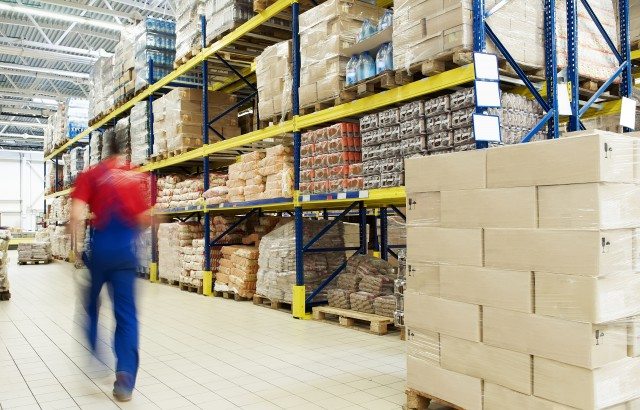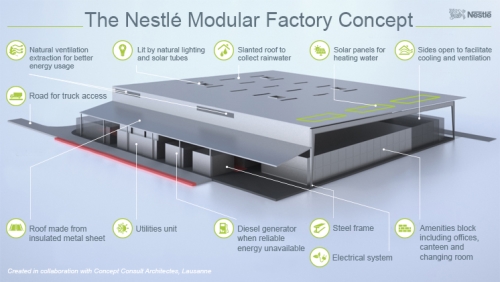Nestlé has created a blueprint for a factory that can be built in half the time of a more traditional one for about 50-60% of the cost.
It says the modular factory will be made of multiple, easy-to assemble component sections designed to offer a flexible, simple and cost-effective solution for creating production sites in the developing world.
“The model is a real evolution from the traditional bricks and mortar factories of the past,” says Alfredo Fenollosa, Nestlé technical head for Asia, Oceania and Africa.
“Big companies traditionally build solid stuff but the lighter structure of this modular factory concept represents a real mindset change for Nestlé. We hope to be able to apply it soon in countries in Africa, and in some parts of Asia.”
Often, investing in these countries can be high-risk, as they can lack infrastructure, reliable energy sources and building expertise but the modular factory concept will enable the company to rapidly establish a footprint, creating local jobs and being closer to its customers and its raw materials.
Building a factory, faster
The average Nestlé factory takes between 18 and 24 months and costs between CHF30 million (US$33.58 million) and CHF50 million (US$55.95 million) to build.
The new modular factory could be complete, and up and running, in less than 12 months, at a cost of between CHF15 million (US$16.79 million) and CHF25 million (US$27.98 million).
The design is a further development of Nestlé’s current ‘box-in-a-box’ concept already used in countries with challenging conditions.
In these, an existing structure – such as a warehouse – is used as a shell structure and a simple factory built inside.
The modular factory takes this a step further, using a series of purpose-built factory sections which can be brought, ready-to-use, directly to the site and connected to each other according to requirements.
These could include, for example, a ready-to-use generator and boiler, a staff canteen and changing rooms for factory employees.
Closer to customers
The factory can then be expanded, moved or its function transformed without having to start from scratch.
The modular factory concept is designed to industrialize simple processes like repacking and mixing dry goods such as Maggi bouillon cubes, rather than creating more complex products.
Nestlé has a long history of investing in Africa, opening its first factory, a condensed milk production plant in the South African city of Estcourt in 1927.
There are currently 25 factories across the continent and a total of 148 across Asia, Oceania and Africa.











